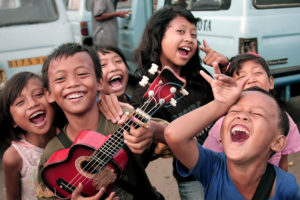By Jetske van Dijk
Looking back, 2017 marked a milestone in the world of child rights. The United Nations General Comment No. 21 on Children in Street Situations was published in June marking an important step towards protecting street-connected children. While children are recognised as rights holders under the Convention of the Rights of the Child (CRC), there had previously been no explicit mention of street-connected children.
The development of the General Comment itself involved extensive consultation sessions with over 1,000 former and current street-connected children in 49 countries, to include their views. The participatory process is exemplary, as it recognises that children are the experts on their own lives and that they should have a voice in matters and decisions that concern them.
Since street children are often mobile, they have stayed relatively under the radar in the development and humanitarian spheres. It has been difficult to find sources on exactly how many street-connected children there are globally and consequently assess the dangers they face. During the consultation sessions, several interesting and important things were brought to light by the children that hopefully will be changed with the publication of the General Comment.
Governments often see street-connected children as a nuisance and believe them to be criminals. Not only did the children report that violence from the police is a common occurrence for many of them, they also said that oftentimes they do not receive any legal or protective help from the authorities. The peer relationships amongst street-connected children are thus very important – and even these are sometimes threatened by authorities.
Street-connected children were also concerned about the lack of access they have to basic necessities, such as food, medical care, shelter, clothes and education. It is very usual for shelters to be in such bad conditions that children prefer to stay on the street; medical care and education often requires documentation that the children struggle to obtain; and food and clothes are expensive, making children resort to begging or sometimes even unlawful activities, in order to sustain themselves. We at Cities for Children believe that street-connected children deserve to have their basic needs met, whilst also gently be supported to make the best of their lives, for example by giving them access to education.
Moving forward, we believe that governments, communities, NGOs and any actors involved with protecting and supporting street-connected children need to find a balance between trying to prevent children ending up on the street, providing those that do with services they need, whilst also recognising the realities these children face that prompt them to choose the streets. The fact that the General Comment demands States to take a child rights approach to strategies and initiatives for children in street situations, is a leap forward for young people whose voices were previously unheard.


